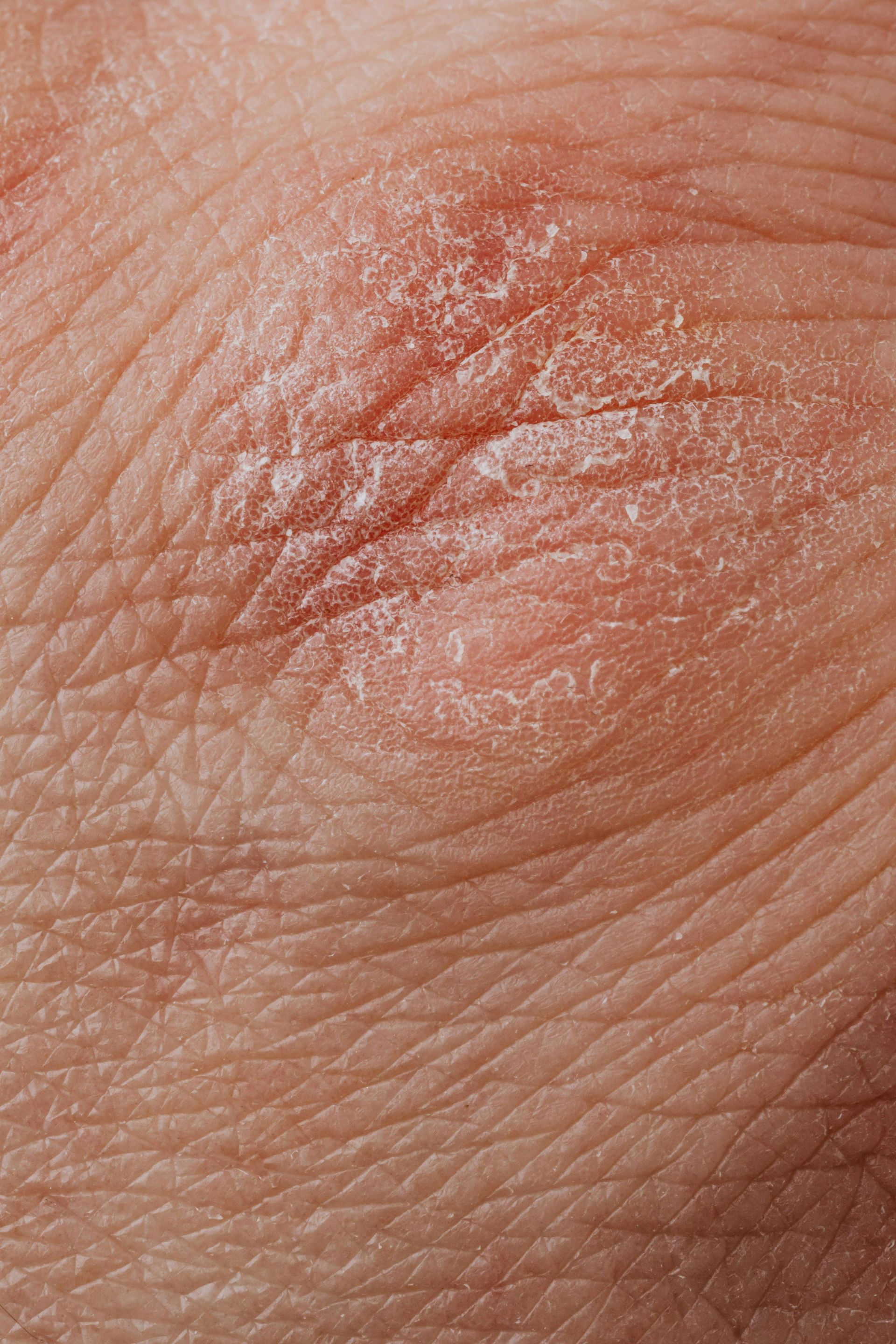Psoriasis
Psoriasis: Causes, Types, and Expert Treatment
Causes and Treatment at Skin Dermatology and Cosmetic Services
Psoriasis is a non-contagious skin disorder driven by an immune system malfunction that leads to an accelerated production of skin cells. When the body fails to shed these old cells quickly enough, they accumulate on the surface, resulting in noticeable skin changes.
There are several types of psoriasis, including:
- Plaque Psoriasis: The most prevalent form, characterized by red and pink patches covered with silvery scales. It commonly affects areas such as the scalp, elbows, knees, hands, and feet but can appear anywhere on the body, including the nails.
- Guttate Psoriasis: Typically diagnosed in children and young adults, this type may follow a viral or bacterial infection, such as strep throat. It presents as small, drop-shaped lesions.
- Pustular Psoriasis: Identified by white, pus-filled blisters surrounded by red skin, this type can appear on various parts of the body, often affecting the hands and feet.
- Inverse Psoriasis: Found in skin folds like the armpits and groin, this form appears as smooth, inflamed red patches.
Psoriasis impacts approximately 4.5 million Americans annually and is slightly more prevalent in women. The chronic nature of this condition can significantly affect daily activities, leading to discomfort and self-consciousness.
At Skin Dermatology and Cosmetic Services, we provide a range of effective treatment options tailored to your specific type and severity of psoriasis. Our skilled dermatologists will develop a personalized care plan that may include topical treatments, phototherapy, systemic medications, and lifestyle adjustments to help manage flare-ups and maintain healthy skin.
To learn more about psoriasis and explore treatment options, schedule your appointment with us today.
Call our offices today!
Call our offices today!
How to Prevent Psoriasis
Preventing psoriasis involves working closely with a dermatologist for tailored advice. Our specialists can help you identify specific triggers that may lead to flare-ups and recommend effective skincare routines. Additionally, they can offer guidance on lifestyle changes that may reduce your risk of developing symptoms. Your skin health is our primary focus, and we’re here to support you in maintaining it.
Psoriasis is classified as a chronic condition, which means there is currently no cure. However, with effective treatments and lifestyle modifications, it can be well-managed. Many individuals with psoriasis lead vibrant, fulfilling lives by finding the right strategies to control flare-ups.
Weather can significantly affect psoriasis, with certain conditions triggering flare-ups for some individuals. Cold, dry climates can be particularly challenging for the skin. To alleviate discomfort, it’s important to moisturize regularly and adjust your skincare routine to suit changing weather conditions.
While it is generally safe to get a tattoo or piercing, extra care is necessary. Psoriasis can influence how your skin responds to these procedures, and flare-ups may complicate the healing process. It’s best to consult your dermatologist before proceeding with a tattoo or piercing.
Stress is a known trigger for psoriasis flare-ups. Implementing effective stress management techniques—such as exercise, meditation, or engaging in hobbies—can help mitigate symptoms. Discussing stress reduction strategies with your healthcare team, including your dermatologist, can enhance your overall control of the condition.
No, psoriasis is not contagious. You cannot "catch" it from someone else, nor can you spread it through physical contact. It is an immune system-related condition, not an infectious disease.

Contact Us
We will get back to you as soon as possible.
Please try again later.

